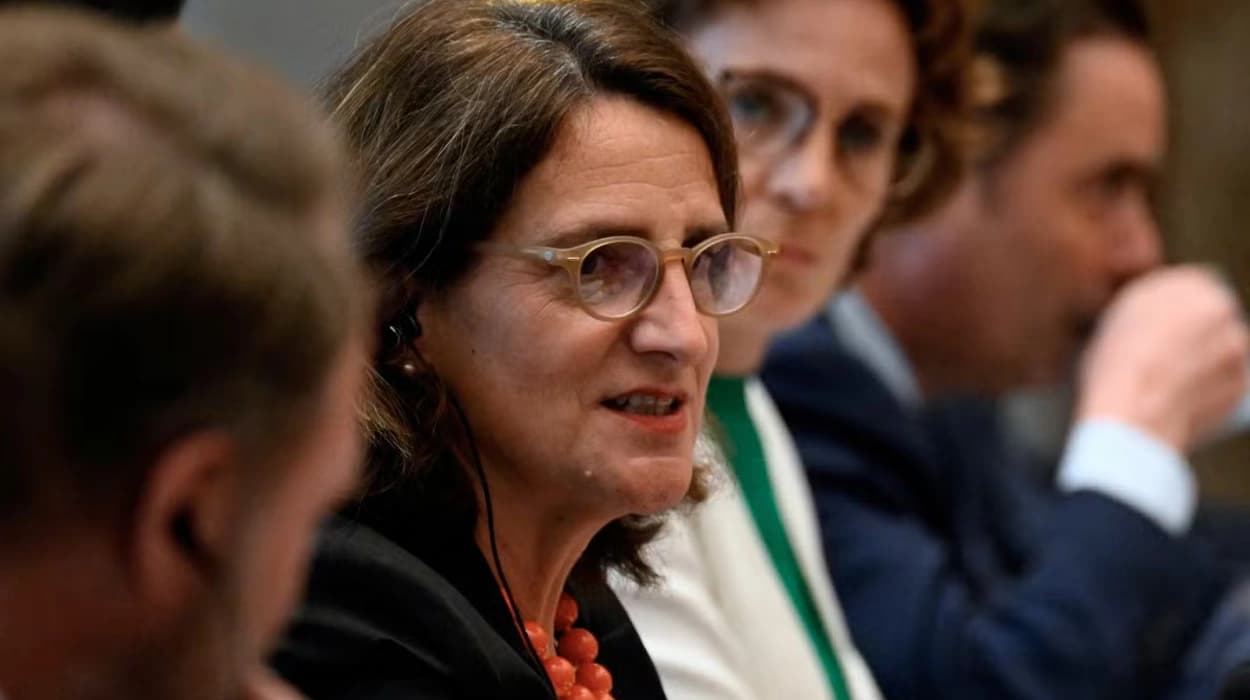A senior European Union official on Thursday accused Israel of committing genocide in Gaza, marking the first such charge from within the EU Commission.
Israel has denied on numerous occasions that it committed genocide during its conflict in Gaza. A request for comment was not immediately answered by Israel's mission to the EU.
“The genocide in Gaza exposes Europe’s failure to act and speak with one voice, even as protests spread across European cities and 14 UN Security Council members call for an immediate ceasefire,”
Teresa Ribera said at the opening ceremony of the academic year at the Sciences Po university in Paris.
In terms of hierarchy, Ribera, the Executive Vice President of the European Commission, is ranked second only to President Ursula von der Leyen. The Spanish socialist, whose portfolio includes antitrust and environmental concerns, is not in charge of EU foreign policy.
Her remarks were more forceful than her declaration from last month, in which she claimed that the killings and displacement in Gaza "looked very much like" genocide.
While not accusing Israel of genocide, the European Commission has charged it with human rights abuses in Gaza.
South Africa has accused Israel of genocide in a case filed at the International Court of Justice in The Hague. Benjamin Netanyahu, the prime minister of Israel, called that "outrageous."
The president of the largest academic society of genocide researchers in the world declared on Monday that the organization has approved a resolution confirming that Israel is committing genocide in Gaza in accordance with the law.
The Foreign Ministry of Israel referred to that comment as shameful.
How might this EU official's statement influence international responses to Gaza?
This powerful language may spur demands inside, and outside the European Union, for more robust political and diplomatic action, including sanctions, restrictions on military cooperation, and other means to put an end to the fighting.
It could also lead EU member states to move from a position of careful or split statements to a unified position denouncing Israel's actions, because they could put aside their fears of internal differences and pressures that have held them back from acting jointly regarding the continuing humanitarian crisis.
This narrative of genocide could magnify the humanitarian
disaster and may unify and energize movements to support greater humanitarian
aid and protection to civilians, thereby creating pressure on others within the
international community and donor states.
